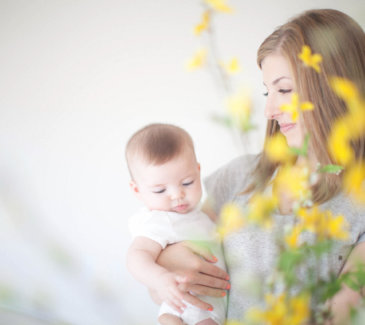A note from Cynthia: Abby Rike is a dear friend who faced an unfathomable tragedy in October 2006 when her husband, five-and-a-half-year-old daughter, and two-and-a-half-week-old son were killed in a fatal car crash. In the years that followed, Abby has experienced God’s grace and restoration firsthand. Now, she endeavors to share his goodness so that others may know that same healing. She has had the opportunity to share her story on Ellen, the Today Show, and as a contestant on The Biggest Loser. When she’s not traveling for a speaking event, feeding her fainting goats, or eating Mexican food with her husband, you can find her blogging at rockthis.org. You will not want to miss her encouraging words to all of us as we minister to grieving friends. Oh, and be looking for a Christian Parenting podcast featuring Abby very soon!
If you have a friend who is hurting and you desperately want to help, but you don’t know what to do, here are some ways you can help.
If you’re walking along the grief path with a friend, on their behalf, let me say thank you.
The grief journey is not only painful, but it’s also soul-crushingly lonely. Your willingness to stick around in the hard times makes you one of the precious few.
Here are a few ways you can help your grieving friend.
Listen more than you talk.
You can’t make it better by saying the “right” thing.
Say that to yourself over and over until you believe it.
You have zero pressure to say anything other than you are so sorry, you love them, and you’ll be praying for them.
Silence can be uncomfortable. Expect the silence and relax. If you’re uncomfortable, imagine how uncomfortable your friend must be. This time she wins.
Rest in the knowledge that your being there lessens her pain as much as it can be lessened. And, just so you know, saying nothing is far better than saying the wrong thing.
Don’t use these unhelpful phrases.
I’m sure I’ve been guilty of saying at least a few of these before my own loss.
After being on the receiving end of these phrases, I’d be remiss if I didn’t give you a heads-up that they aren’t helpful. At. All.
Silence is waaaaaay better than anything below:
- They’re in a better place.
- Everything happens for a reason.
- You’re so strong.
- I know exactly how you’re feeling.
- Any story about your loss.
Ask about the person who died.
If you’re nervous about upsetting your friend by asking about their loved one by name, couch your question with, “I would love to hear more about your daughter if you’re up for talking about her.”
And then listen.
There will probably be tears.
Do your best not to appear physically uncomfortable, as in looking away, squirming in your seat, or seeming like you want to be anywhere but listening to this story.
Don’t worry if you begin crying with your friend. It shows you are in the moment and empathizing in a real way.
Be proactively helpful.
Your friend isn’t going to ask for help.
Especially in the beginning, your friend’s brain can’t figure out what she needs, much less who would or could do what she needs.
Don’t wait for or expect your friend to ask for help. Anticipate their needs and jump in.
- Bring coffee.
- Pick up the mail.
- Do minor cleaning duties. (Be sure to ask before throwing anything away or washing clothes.)
- Bring food.
- While green bean casserole may “freeze beautifully” (name that movie and we probably need to be best friends), nobody wants that when they don’t have much of an appetite to begin with. And, if there are kids around, make sure it’s something they will eat.
- Give gift cards to restaurants. Some days, defrosting something is more than your friend can handle.
- If your friend has kids, take them to a movie or something else fun, pick them up from school, bring them a toy (that doesn’t make noise) or a book to give them something to do.
Be pressure-free.
When you call and leave a message, don’t ask for a callback.
You can say, “Hey __________, I was just thinking about you and wanted to check in. I’ll be around if you feel like talking. If not, I’ll touch base later in the week. Love you.”
Don’t take your friend’s grief personally.
Your friend can barely breathe. She’s not purposefully pushing you away; she’s struggling to survive.
Keep in mind that grief lasts longer than you expect. Most people stop trying to help a griever after the three-month mark. This is when your friend needs you most—the time when everyone else’s life has gone back to normal and theirs hasn’t.
Plan to stick around for the long haul.
Don’t forget.
Important dates are hard. Birthdays, anniversaries, and the date of death are hard. Make it a point to reach out or make plans with your friend on those days.
Set calendar reminders to remind you. If you’re planning to send a card or make plans, set the alarm a week or so ahead of time.
In conclusion
You’re to be commended for wanting to help your friend. Grief makes everyday interactions awkward. Kudos to you for putting your friend’s needs above your own.





